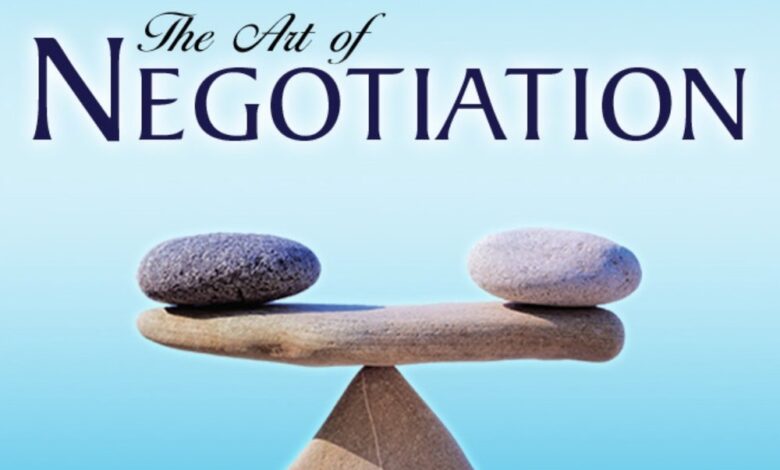The art of negotiation

Negotiation is a method people use to resolve their disagreements. The process of reaching compromises and agreements while avoiding arguments. When there is disagreement, individuals naturally strive to achieve the best possible outcome for their position (or perhaps the organization they represent).
But the principle of fairness, striving for mutual benefit and maintaining relationships are the keys to success. Particular forms of negotiation are used in many situations, including international affairs, legal systems, governments, labour disputes, and domestic relations. However, general negotiation skills can be learned and applied in various activities. Negotiation skills are very useful in resolving differences that arise between you and others.
Before negotiations can take place, it is necessary to decide when and where a meeting to discuss this issue will be held and who will be present. Setting a limited time limit can also help prevent lingering disagreements. The importance of this phase is to make sure you have all the facts relevant to the situation in order to clarify your position. In the above working example, we need to know the organization’s “rules” regarding who should provide assistance if assistance is deemed inappropriate, and the reasons for such denials.
Your organization may have guidelines that you can refer to when preparing for negotiations. Being prepared before discussing disagreements can help avoid further conflicts and unnecessary time wasted during meetings. It may be helpful to take notes to record points raised during the discussion stage in case further clarification is needed. Listening is very important. Both sides should be given equal opportunity to present their views. It is helpful to list these factors in order of priority.
This clarification often makes it possible to identify or establish common ground. Clarity is an important part of the negotiation process, avoiding misunderstandings that cause problems and stand in the way of reaching a positive outcome. Win-win results are usually the best results. This may not always be possible through negotiation, but should be the ultimate goal. At this point, you should consider proposing alternative strategies and compromises. Compromise is often a forward-looking option that can achieve greater benefits for all parties involved compared to sticking to the original position.
To arrive at an acceptable solution, it is important that all parties involved remain open. The agreement should be completely clear so that both parties can understand what the agreement is about. If the negotiation process fails and no agreement can be reached, a new date should be set for another meeting. This avoids getting all parties involved in heated discussions and arguments that not only waste time, but can damage future relationships. At subsequent meetings, the negotiation procedure should be repeated. New ideas and interests should be considered and the situation should be reconsidered.
At this stage, looking for other alternative solutions or having another person intervene may also help.












